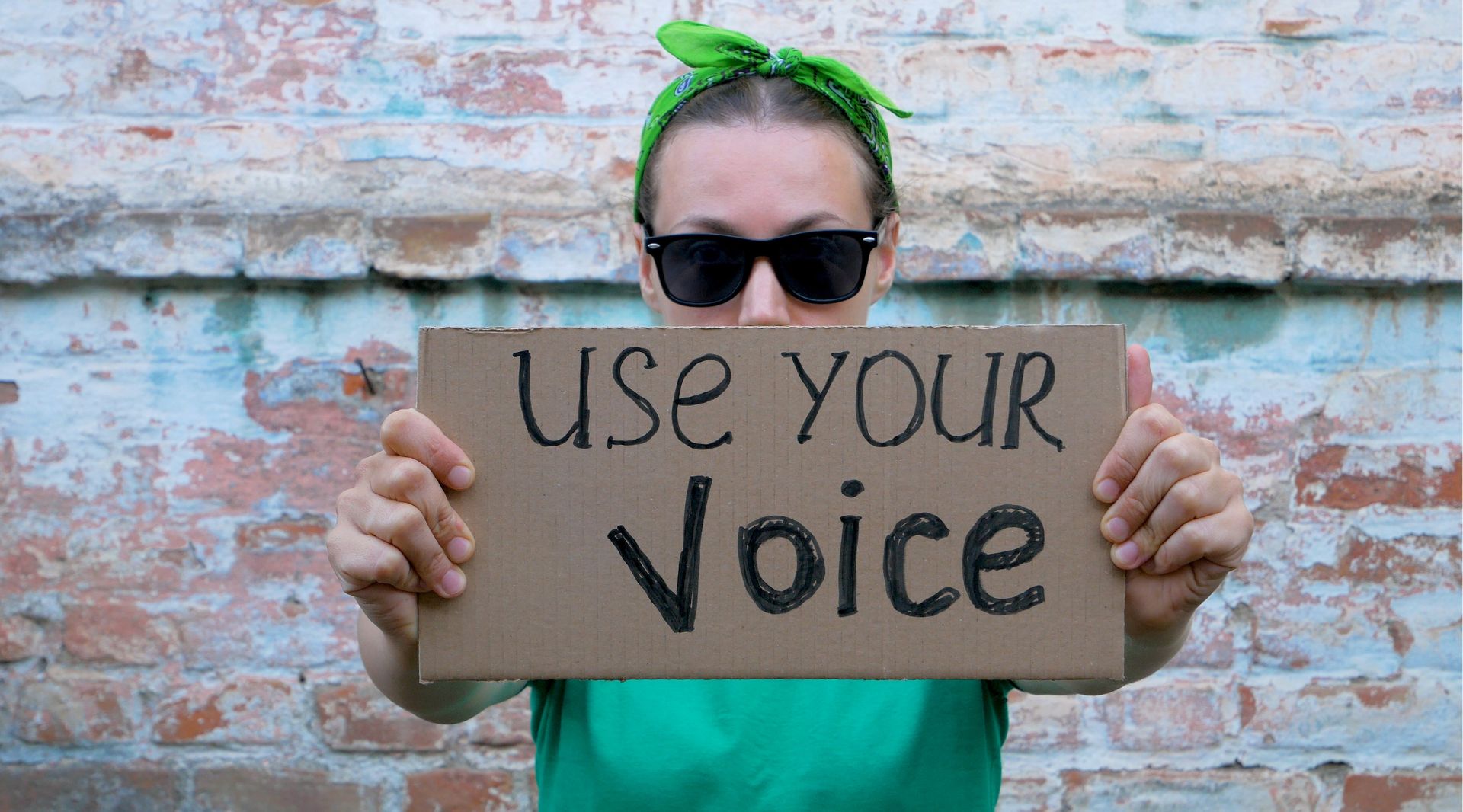When the pressure mounts culturally, politically, relationally, what do we choose to say? What about when that pressure isn’t just outside us but also within us, grating and griding against our most easily bruised pain points as the most egregious of injustices?
Note that the question isn’t a matter of if. We have all been given voices to use as instruments of truth, tuned to the sound of the same Voice that spoke life into the void “in the beginning,” (Genesis 1:1) giving us God’s image to bear, God’s voice and heart to carry. This Voice led people out of bondage and into a Promised Land, into the realization of healing, restored community, and liberation. This Voice conquered death on a jagged and splintered beam of brutality and said, “It is finished,” (John 19:30) declaring that what looked like defeat was actually victory waiting to be resurrected. And this Voice has echoed across history in the throats of men and women who spoke, shouted, and even whispered into darkness, destruction, and division.
So it is never a question of if we’ll speak. As image-bearers, reflecting the One who spoke life into the void, we carry voices within our God-given nature. The real question is when—and what we’ll choose to say. If God, at the end of six days of work, could call that which was spoken into being “very good,” (Genesis 1:31) then the words that roll up from our gut through our tight and dry throats and off the tips of our twisted tongues must mirror not just the urgency of human instinct but what is good—even very good.
In a world where the headlines seem to make bad news sound tame and trivial, to say good words may seem like too high a bar. But the bar is set just so because the stakes are high—as is the potential for personal humiliation, sabotage, or relational damage. We are increasingly accessible and visible, and we live connected to one another and the world through social media. One line from a blog or speech gets overemphasized or undercut. A post gets reshared or screenshot, saved for later as either daily devotional or destructive blackmail. Even if we say something in private, the childhood game of telephone can take over on a public and global scale, moving from fingers to Twitter or Facebook instead of through cupped hands to innocent ears.
In the midst of all these colliding pressures, I’ve found myself hemmed in with fears and questions—and I suspect you have too.
• How will that sentence be interpreted?
• What will my family think when they read it?
• How will this impact my closest friendships?
• Will I be seen as inauthentic? A virtue signaler?
• What’s the point? Who cares if I say anything anyway?
• But if I don’t, others will think I don’t care. I do care!
• Could I lose my job? My good reputation?

These fears and questions are loud. So we type and we delete. We record and we rerecord—one, two, three, sixteen times to get it just right. Some of us will turn the comments off. Some of us will keep the comments on, cracking our knuckles to the tune of “Eye of the Tiger,” ready to respond to whoever might dare oppose us. Some of us will try to engage peaceably or privately, in a direct message or even face-to-face.
But all of us feel the stress as we try to balance our gut instincts with the realities of how and where our words will land. So why attempt this balancing act at all? Because in the circus of our world’s messes, we know that
if we can call on the courage and the wisdom,
if we can scrape enough good words together,
we might be surprised by hope—even healing—on the other side.
Ashlee Eiland, Say Good
Good words have power. Good words carry with them the potential to keep meaningful relationships from devolving into distance and dysfunction. They have the capacity to build up confidence and tear down division; to create community in the crevices of vulnerability; to shape safe havens where people are no longer anonymous social media bots to be battled but exquisite image-bearers to be seen, loved, and known.
Words have started wars. What if learning to balance our words could heal hateful hearts?

ASHLEE EILAND
Ashlee Eiland is a thought leader, writer, and Bible teacher who is deeply committed to advancing God’s redemptive work here on earth. Her work has one purpose: to help humanity build bridges back to the truth of who God is and between one another in whole and healing relationships. Ashlee leads as Head of School for Living Stones Academy, a Christ-centered, intentionally inclusive and academically rigorous elementary school. She was formerly vice president of partnerships for The Colossian Forum, a non-profit that works to harness the power of disagreement to restore connection. She has served as a coach and cohort leader with Women Speakers Collective and previously served as co-lead pastor at Mars Hill Bible Church in west Michigan. Watch for the forthcoming documentary, Leap of Faith, which features Ashlee and the work of The Colossian Forum on personal transformation and communal reconciliation. Ashlee and her husband live in Grand Rapids with their three kids. Learn more at AshleeEiland.com.

